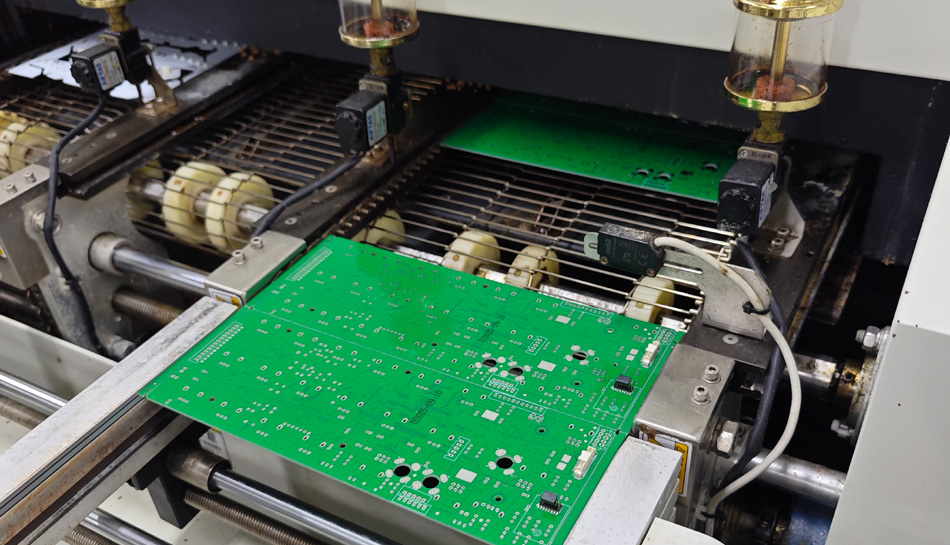- English
- Español
- Português
- русский
- Français
- 日本語
- Deutsch
- tiếng Việt
- Italiano
- Nederlands
- ภาษาไทย
- Polski
- 한국어
- Svenska
- magyar
- Malay
- বাংলা ভাষার
- Dansk
- Suomi
- हिन्दी
- Pilipino
- Türkçe
- Gaeilge
- العربية
- Indonesia
- Norsk
- تمل
- český
- ελληνικά
- український
- Javanese
- فارسی
- தமிழ்
- తెలుగు
- नेपाली
- Burmese
- български
- ລາວ
- Latine
- Қазақша
- Euskal
- Azərbaycan
- Slovenský jazyk
- Македонски
- Lietuvos
- Eesti Keel
- Română
- Slovenski
- मराठी
- Srpski језик
How do PCBA factories' sustainability strategies impact the industry's outlook?
2025-09-18
With the global emphasis on environmental protection and sustainable development, the PCBA (Printed Circuit Board Assembly) industry is constantly adjusting its development strategies to adapt to new market demands and social responsibilities. Sustainable development strategies are not only crucial to the long-term survival and development of individual companies but also have a profound impact on the overall industry outlook. This article will explore how the sustainability strategies of PCBA factories impact the industry's outlook.

1. Sustainable development promotes efficient resource utilization
Resource recycling
When implementing sustainable development strategies, PCBA factories often prioritize resource recycling. For example, by recycling waste materials and old electronic products, companies can reduce raw material costs while minimizing environmental pollution. Resource recycling not only improves production efficiency but also effectively reduces a company's carbon footprint, fostering a more environmentally friendly production approach for the industry.
Improving Production Efficiency
Sustainable development strategies also emphasize optimizing production processes and reducing resource waste. For example, the use of advanced automation equipment and intelligent production management systems makes production more efficient, reducing energy consumption and material waste. This not only lowers production costs but also provides companies with a greater competitive advantage.
2. Sustainable Development Enhances Corporate Image
Enhancing Market Competitiveness
As consumers become more environmentally conscious, more and more customers are focusing on environmental and sustainability performance when selecting suppliers. If PCBA factories can demonstrate their sustainability efforts, they can enhance their market competitiveness and attract more customers and partners.
Gaining Social Recognition
Companies that implement sustainable development strategies often gain widespread social recognition. This not only enhances their brand image but also opens up more business opportunities. For example, PCBA factories with environmental certifications can more easily enter demanding markets and secure more projects.
3. Sustainable Development Drives Technological Innovation
Leading Industry Technological Advancement
To achieve sustainable development, PCBA factories need to continuously invest in technological innovation. For example, developing low-energy, high-efficiency production equipment and promoting the use of environmentally friendly materials. These technological innovations not only bring direct economic benefits to the companies but also drive technological progress across the industry, enhancing its overall competitiveness.
Promoting the Emergence of New Business Models
Sustainable development strategies also encourage PCBA factories to explore new business models. For example, some companies have begun offering recycling and remanufacturing services for electronic products, extending product lifecycles and reducing environmental impact. These new business models not only broaden revenue channels for companies but also inject new impetus into industry development.
4. Sustainable Development: Addressing Policy Pressure
Complying with Regulatory Requirements
With increasing global emphasis on environmental protection, more and more environmental regulations are being introduced. By implementing sustainable development strategies, PCBA factories can better comply with relevant regulations and reduce the risks associated with non-compliance. This is crucial for the long-term survival and development of companies.
Meeting Market Trends
Sustainable development is not only a regulatory requirement but also a market trend. Consumers and customers are increasingly choosing companies that demonstrate environmental awareness. PCBA factories that can promptly adjust their development strategies to meet this trend will gain greater market share.
Conclusion
Sustainable development strategies have a profound impact not only on PCBA factories themselves but also on the prospects of the entire industry. By improving resource efficiency, enhancing corporate image, promoting technological innovation, and addressing regulatory pressure, PCBA factories can gain greater competitive advantages and market opportunities through sustainable development. With the industry's increasing emphasis on sustainable development, the future PCBA processing market is poised to become greener, more environmentally friendly, and more efficient.
-
Delivery Service






-
Payment Options









